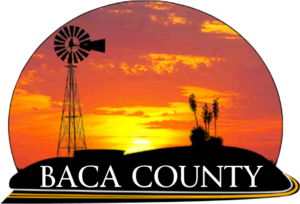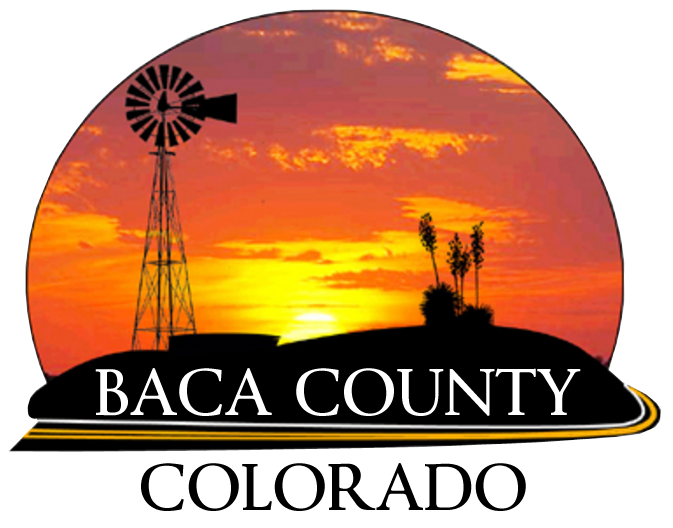County Assessor

741 Main St. Suite #6
Springfield, CO 81073
The County Assessor is responsible for valuing all real and personal property, including mobile homes, residential, commercial properties and agricultural land unless exempt by statute. The assessor is responsible for the apportionment of state assessed properties using the values received from the Division of Property Taxation. He or she determines the equitable value of property to ensure that each taxpayer pay only his or her share of the taxes. Anyone who disagrees with changes in the actual value of real property can object or file a protest with the Assessor’s Office. The Assessor and staff welcome questions concerning the property tax process or the valuation of properties.
Programs and Services
-
Disabled Veteran Property Tax Exemption
-
Colorado Senior Property Tax Exemption
-
Determining Property Tax
-
County Abstracts
Important Dates
Frequently Asked Questions
Requests made for ownership research for real estate or minerals completed by the staff will be assessed $30 per hour after the first hour. (HB 14-1193) The first billable hour is due in advance and the balance paid before the data is released. Credit Cards are allowed via the Baca County Treasurer. Copies are assessed .25 per page. Ownership plats copies are $5 each for real and severed mineral section requested. Any questions please contact the office.
Pursuant to C.R.S. 24-72-205, the Assessor’s office may charge for preparation and copies of requested documents.
Research fee
Computer time $30 per hour after first hour and .25 per page payable in advance.
Mineral research no more than 2 sections for ownership then $30 per hour after first hour applies. More than two sections they must get someone else to do it. Plat pages copies are $1.00 per section for each mineral & surface Mineral/surface ownership (by Owner only, does not include addresses)
Requests must be made in writing or in person, payable in advance.
Digital camera photos per section (1-land, 1 minerals) each separate 1.00
Copies (per side) All copies on standard paper 8.5×11 .25
The fee is .25 per standard page per C.R.S. 24-72-205
Sales Pages – Subscription is $20 per year, for each sales type – Ag or other. Renewable each January and current email address. This will be updated at least 6 times a year.
Owner request for their own property free
Postage to send Red Map Book (Updated 10/21) 9.00
Credit Card Processing Fee Treasurer Office 2.4% of total or 1.50 whichever is greater.
Echeck $1.50
Ownership list for election first one to Director of Election (DOE) free, additional copies .25 per page.
Pursuant to Colorado State Statute C.R.S. Article 3, Title 39, all taxable and exempt property is valued by the county assessor valuation criteria as stipulated by statute and by using manuals, appraisal procedures, and instructions issued by the Property Tax Administrator. The total value as determined by the County Assessor is certified to the county entities and the state. Each entity certifies a mill levy to the Assessor and then it is the duty of the Assessor to extend the tax on all property assessed and direct the County Treasurer to collect the taxes.
All property, real and personal, located in the State of Colorado on the assessment date, January 1, is taxable unless expressly exempted by the Constitution or state statutes. Article X, Section 3, Colorado Constitution, and 39-1-102 (16), C.R.S.
Most property in Colorado is valued using the three approaches to value: the market approach, the cost approach, and the income approach. The exceptions to the three approaches include residential real property (market only), agricultural land, and natural resource land (special valuation procedures based on productivity and production).
The market, cost, and income data that county assessors use to apply the appropriate approaches to value are collected during specific periods prescribed by statute and represent a certain ”level of value”.
Property taxes are not calculated on the ”full actual value” as determined by the assessor. Instead, an assessment percentage is applied according to the classification of the property. 39-1-104(1) and (1.5), C.R.S. Residential property is assessed at a percentage of the actual value; currently, this percentage is 7.2% while most other property is assessed at 29%.
A property owner will be sent a notice of valuation (NOV) each year the value changes. This notice must be mailed no later than May 1. In the language of the notice is stated the actual value that the assessor has assigned to your property. This notice of valuation is not a tax bill. The purpose of this notice is to inform you of any change in your property valuation and advises you of your right to appeal the value.
If a taxpayer disagrees with the value assigned by the assessor, the taxpayer may file protest during the statutory protest period. Real property protests must be postmarked no later than June 1, or a taxpayer may appear in person to protest no later than June 1. 39-5-121(1), C.R.S. Personal property protests must be postmarked no later than June 30, or a taxpayer may appear in person to protest no later than July 5. 39-5-121(1.5), C.R.S. A protest form is included with the notice of valuation: however it is not mandatory for the taxpayer to use this form, or any other particular form, when protesting.
All personal inquiries and letters/faxes received during the protest period are processed and reviewed. The assessor’s staff corrects all erroneous or improper valuations. If the assessor determines that the value is correct, no adjustments will be applied. In each determination, the assessor includes the reason(s) for denial and information regarding the taxpayer’s right of appeal to the County Board of Equalization.
NO! Colorado statutes require that the assessor hear protest on valuation that has been assigned by the assessor. The assessor does not assign taxes. Taxes include a number of components that are beyond the assessor’s control, such as mill levy and assessment rate. The assessment rate is set by the State Legislature and mill levies are determined by each governing entity such as schools, city or county, fire department, etc. The end results of these components determine the amount of taxes levied.
Property ownership cannot be changed until necessary recorded documents are received. For more detail of the procedure contact an attorney.
External Resources
News
- Need Immunization Records? February 6, 2025
- Community Health Assessment (CHA) February 6, 2025
- Help Us, Help You! February 6, 2025
- Notice of Tax Sale – November 21st, 2024 October 29, 2024
- Notice of Election – November 5th, 2024 October 27, 2024




